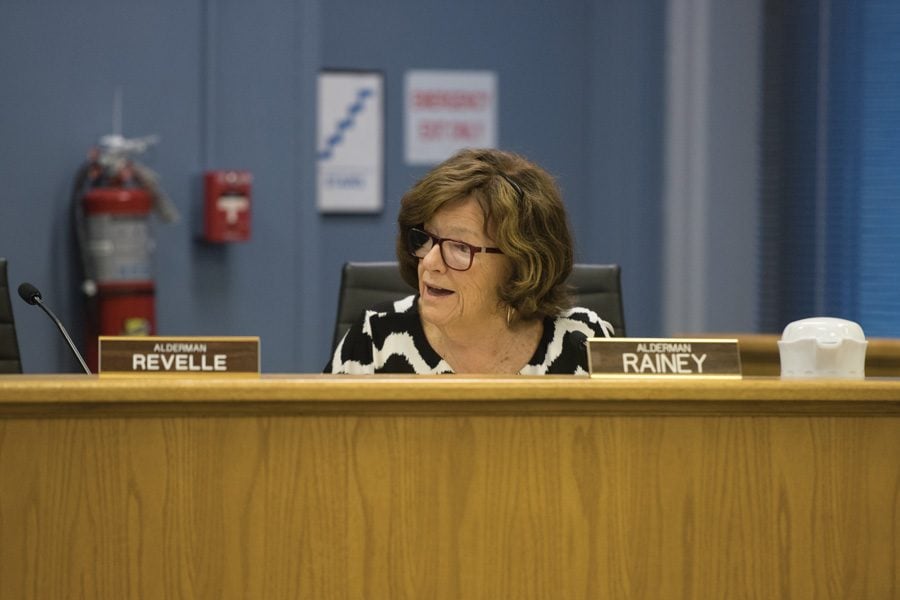City Council to discuss increasing real estate transfer tax
Daily file photo by Katie Pach
Ald. Ann Rainey (8th) speaks at a City Council meeting. Rainey recommended Evanston implement a progressive real estate transfer tax at Monday’s meeting.
July 26, 2018
Aldermen passed a resolution Monday 6-2 allowing city staff to move forward with the process of increasing Evanston’s real estate transfer tax.
The transfer tax resolution, if passed at the Aug. 13 City Council meeting, would increase the amount a seller must pay per thousand dollars when a property is sold. The current rate in Evanston is $5 per thousand for all properties.
City manager Wally Bobkiewicz said Monday’s resolution was to give city staff guidance on the topic moving forward. City staff recommended increasing the overall transfer tax to $7 per thousand from the current $5 per thousand rate to be split evenly between the buyer and the seller.
Ald. Ann Rainey (8th) previously introduced the idea of a transfer tax increase to gather more revenue at the July 9 City Council meeting.
“The least offensive to the average taxpayer in the City of Evanston are those properties that exceed $1.5 million,” Rainey said. “I don’t want the majority of our residential taxpayers paying an additional real estate transfer tax.”
Rainey’s recommendation, which was different from the city recommendation, separates the transfer tax into tiers dependent on the listing price of the property. Rainey proposed the transfer tax increase from $5 to $7 per thousand on all properties listed at $1.5 million to $5 million and an increase to $9 per thousand on all properties listed over $5 million. All properties listed under $1.5 million would not be affected by the proposed tax increase and remain at $5 per thousand.
Hitesh Desai, the city’s chief financial officer, said Rainey’s plan would generate an estimated $4.5 million, about $600,000 more than the city made in 2017. The staff recommendation would bring an additional $1.4 million compared to revenue from taxes in 2017.
Ald. Robin Rue Simmons (5th) spoke in support of Rainey’s recommendation because it would only increase the tax for more expensive properties.
“There is no space for increase in taxes for the average Evanston resident,” Simmons said. “We have families that are losing their homes, we have seniors who are losing their homes.”
Simmons added that passing the raise for all Evanston residents would be in “complete contradiction” of the goals of City Council.
Rainey’s recommendation originally failed 6-2. The City Council also voted against the city’s recommendation 5-3. After both votes, Ald. Cicely Fleming (9th) moved to reintroduce Rainey’s previous plan and it passed 6-2. Ald. Judy Fiske (1st) and Ald. Thomas Suffredin (6th) voted against it.
Fiske said she would support the staff recommendation if the $7 per thousand was shared evenly between the buyer and the seller, with each side paying $3.50 per thousand. She voted against Rainey’s proposal both times.
Fleming said she supported Rainey’s proposal, but also wanted to start discussing where the additional revenue from the tax will go within the city’s spending.
“If we continue to bring in more revenue without designating that for some kind of debt, project, whatever,” Fleming said. “I think, at least for the residents I speak to, it causes more frustration. They feel like if there’s a continuous tax or a continuous fee increase, there’s more spending and they don’t really see the correlation between the two.”
According to city documents, City Council will hold a public hearing about the real estate tax increases at the Aug. 13 meeting.
Email: [email protected]
Twitter: @lizbyrne33


